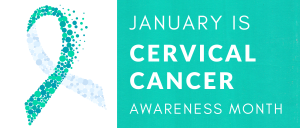By Morgan Wanyonyi
HIV and gender-based violence (GBV) are interconnected issues that create a complex web of challenges, particularly for women and marginalized communities. GBV, encompassing physical, sexual, or psychological harm directed at an individual based on their gender, is not only a violation of human rights but also a significant factor contributing to the spread of HIV.
In Kenya, both HIV and GBV are prevalent. According to the World Health Organization (WHO), Kenya has one of the highest HIV prevalence rates in the world, with approximately 4.9% of adults aged 15-49 living with HIV in 2020. Additionally, the Ministry of Health reports that GBV is widespread in Kenya, affecting both women and men. A national survey found that 45% of women aged 15-49 have experienced physical violence, while 14% have experienced sexual violence.
Women often face a heightened risk of both HIV infection and gender-based violence. Forced or non-consensual sex, intimate partner violence, and societal inequalities exacerbate vulnerability to HIV transmission. Fear of violence may also prevent individuals, especially women, from negotiating safer sex practices or accessing HIV prevention, testing, and treatment services.
Addressing the intersection of HIV and GBV requires a comprehensive approach that acknowledges the socio-cultural factors perpetuating both issues. Empowering women, challenging gender norms, and promoting education about consent and healthy relationships are vital steps. Additionally, providing support services for survivors of gender-based violence and integrating HIV prevention strategies into these services can create a more holistic response.
Efforts to combat HIV and GBV must also involve dismantling systemic inequalities that contribute to both issues. This includes advocating for legal reforms, ensuring access to healthcare and justice for survivors, and fostering societal attitudes that reject gender-based violence. By addressing the interconnected nature of HIV and GBV, we can work towards a more equitable and healthier future for all.
Communities and governments play crucial roles in addressing HIV and GBV. Communities can raise awareness, promote gender equality, and provide support to survivors. Governments can enact and enforce laws that protect against GBV, ensure access to HIV prevention and treatment services, and allocate resources to support prevention and care programs. By working together, communities, governments, and other stakeholders can help create a safer, healthier future for all Kenyans.
Morgan Wanyonyi, Sexual and Reproductive Youth Advocate, NAYA Kenya.



